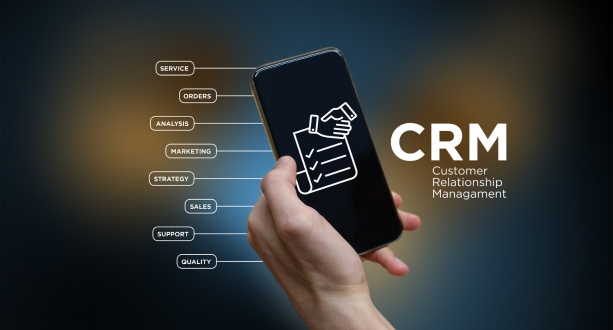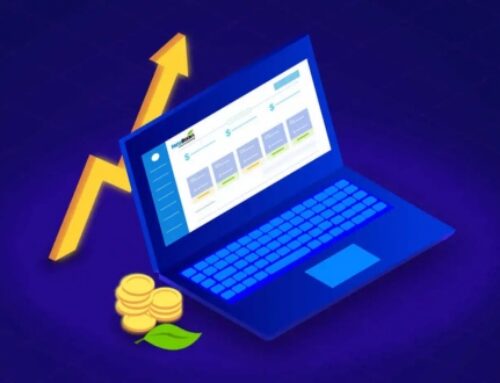Introduction to Salesforce CRM Real Estate Solutions: Unlocking Efficiency and Growth in Your Property Portfolio
The world of real estate is a dynamic one, filled with exciting opportunities and ever-evolving challenges. But amidst the hustle of deals and negotiations, a hidden foe can silently drain your resources and hinder your growth: inefficient contract management.
The Paperweight on Your Progress: Challenges in Real Estate Management
Imagine mountains of paper contracts, each a labyrinth of clauses and legalese, threatening to bury your business under a pile of missed deadlines, lost agreements, and compliance nightmares. This is the reality for many real estate professionals, where traditional paper-based systems create a frustrating bottleneck in every stage of the process.
Common challenges plaguing real estate management include:
- Disorganized contracts: Finding specific agreements can feel like an archaeological dig, wasting precious time and resources.
- Error-prone workflows: Manual processes lead to typos, inconsistencies, and missed deadlines, jeopardizing deals and relationships.
- Compliance headaches: Navigating complex regulations and internal policies can be overwhelming, leaving you exposed to legal risks.
- Lack of transparency: Clients feel disconnected and uninformed, leading to frustration and potential disputes.
- Data silos: Valuable insights remain trapped in scattered documents, hindering informed decision-making and growth strategies.
Salesforce CRM to the Rescue: A Beacon in the Paper Labyrinth
Enter Salesforce CRM Real Estate, a powerful platform designed to transform your operations from a chaotic paper chase into a streamlined, data-driven symphony of success. No more paper mountains, just a centralized repository where all your contracts, templates, and amendments are neatly organized and readily accessible.
Key functionalities of Salesforce CRM for real estate include:
Automated workflows: Streamline your processes, from negotiations to approvals and renewals, with automated workflows that guide you every step of the way.
- E-signatures: Ditch the paper chase and close deals faster with secure e-signatures, saving time and boosting efficiency.
- Data-driven insights: Gain real-time visibility into contract performance, identify potential risks, and make informed decisions with powerful reporting tools.
- Compliance support: Stay ahead of regulations with built-in compliance features and pre-built templates, ensuring legal accuracy and peace of mind.
- Client engagement tools: Foster stronger relationships with online portals, self-service options, and improved communication tools.
Reap the Rewards: Benefits of Adopting Salesforce CRM for Real Estate
The benefits of embracing Salesforce CRM extend far beyond simply taming the paper tiger. Here’s how it can unlock your real estate potential:
- Increased revenue and profitability: Close deals faster, minimize errors, and maximize upsell opportunities with streamlined processes and data-driven insights.
- Improved client satisfaction: Build trust and transparency with enhanced communication, self-service options, and a more responsive approach.
- Enhanced risk mitigation and compliance: Reduce legal risks and ensure regulatory adherence with automated workflows and robust security features.
- Greater operational efficiency: Save time and resources by eliminating manual tasks, automating processes, and accessing information with ease.
- Data-driven decision-making: Gain valuable insights from real-time data to make informed strategic decisions about your property portfolio.
- Embrace the digital revolution and say goodbye to the paper labyrinth. Salesforce CRM Real Estate is not just a platform; it’s your key to unlocking a world of efficiency, growth, and success in the dynamic world of real estate.
Exploring Salesforce Real Estate Cloud: Your Key to a Thriving Property Portfolio
Welcome to the world of Salesforce Real Estate Cloud, where paper tigers are extinct and efficiency reigns supreme. We’ve already peeked at the challenges and the transformative potential of this platform. Now, let’s delve deeper into the features and functionalities that empower you to manage your real estate operations like a seasoned pro.
Under the Hood: Overview of Salesforce Real Estate Cloud
Imagine a single, unified platform housing all your real estate needs – from managing leads and listings to closing deals and nurturing relationships. That’s the magic of Salesforce Real Estate Cloud. It’s a comprehensive suite of modules designed to streamline every aspect of your business, including:
- Lead and Opportunity Management: Track leads, nurture them through the sales funnel, and convert them into loyal clients with personalized interactions and data-driven insights.
- Property and Listing Management: Organize your property portfolio, manage listings effectively, and showcase your properties to the right audience with captivating descriptions and virtual tours.
- Contract Management: Streamline the entire contract lifecycle, from negotiations to e-signatures and renewals, with automated workflows and centralized document storage.
- Reporting and Analytics: Gain real-time insights into your business performance, identify trends, and make informed decisions with comprehensive dashboards and customizable reports.
- Compliance and Security: Ensure regulatory adherence and data protection with robust security features and pre-built compliance templates.
Lead the Way: Efficient Lead and Opportunity Management
In the dynamic world of real estate, capturing and nurturing leads is crucial. Salesforce Real Estate Cloud empowers you to:
- Centralize lead capture: Capture leads from various sources – website forms, social media, referrals – in one centralized location.
- Qualify and prioritize leads: Score leads based on specific criteria, prioritize high-potential leads, and assign them to the right agents for personalized nurturing.
- Track interactions: Monitor email exchanges, phone calls, and other interactions with leads to gauge interest and tailor your approach.
- Convert leads into deals: Convert qualified leads into opportunities and guide them through the sales cycle with automated workflows and stage-based tasks.
Master the Market: Property and Listing Management
Managing a property portfolio can be complex, but Salesforce Real Estate Cloud simplifies it. You can:
- Organize your properties: Create detailed profiles of each property, including photos, floor plans, virtual tours, and key features.
- Track property availability: Monitor occupancy rates, schedule appointments, and manage maintenance requests efficiently.
- List and market properties: Showcase your properties on MLS and other platforms with captivating descriptions, targeted campaigns, and real-time updates on pricing and availability.
- Collaborate with teams: Share information on listings with colleagues, partners, and potential buyers seamlessly, ensuring everyone is on the same page.
Automate and Target: Marketing and Campaigns with a Spark
Traditional marketing methods can be time-consuming and inefficient. Salesforce Real Estate Cloud helps you:
- Automate marketing tasks: Create automated email campaigns, social media posts, and targeted advertising based on lead behavior and property preferences.
- Segment your audience: Tailor your marketing messages to specific buyer groups with personalized content and offers.
- Track campaign performance: Monitor the effectiveness of your campaigns with detailed analytics and adjust your approach for better results.
- Nurture leads and build relationships: Stay connected with potential and existing clients through automated email sequences, personalized messages, and targeted outreach.
Seamless Connections: Integration with MLS and Real Estate Platforms
Data silos are a thing of the past. Salesforce Real Estate Cloud seamlessly integrates with:
- Multiple Listing Services (MLS): Sync your property listings with MLS platforms in real-time, ensuring wider reach and accurate data.
- Real estate platforms: Connect with industry-specific platforms and apps to enhance your functionality and access valuable tools and resources.
- Other cloud applications: Integrate with your existing CRM, accounting, and marketing tools for a unified view of your operations.
- By harnessing the power of these integrations, you streamline your workflow, eliminate data silos, and gain a holistic view of your entire real estate ecosystem.
Building Lasting Relationships and Unlocking Growth: The Benefits of Salesforce CRM for Real Estate
In the world of real estate, success hinges on one crucial element: relationships. Building trust, understanding needs, and exceeding expectations are the cornerstones of thriving businesses. But in the age of digital acceleration, traditional methods of client management can feel like a slow waltz in a fast-paced tango.
Enter Salesforce CRM for Real Estate, a powerful platform designed to revolutionize how you connect with clients, manage transactions, and navigate the ever-changing landscape of the industry. Let’s delve into the tangible benefits that await you on this journey of growth and success:
Nurturing Trust and Loyalty: Enhanced Client Relationship Management
Imagine a world where every client feels valued, understood, and proactively engaged. Salesforce CRM makes this a reality with features that:
- Personalize interactions: Track client preferences, property interests, and communication history to tailor your approach and build lasting connections.
- Communicate effectively: Leverage automated email campaigns, SMS notifications, and online portals to keep clients informed every step of the way.
- Anticipate needs: Analyze data and identify potential issues before they arise, demonstrating proactive care and exceeding expectations.
- Collaborate seamlessly: Facilitate communication and information sharing between agents, brokers, and legal teams, ensuring a unified and responsive experience for clients.
From Inquiry to Closing: Efficient Transaction Management
Forget the days of juggling paperwork and chasing deadlines. Salesforce CRM streamlines transactions with:
- Automated workflows: Guide clients through each stage of the process, from initial inquiries to offer negotiations and final closing, minimizing errors and delays.
- Centralized document management: Store contracts, agreements, and other documents securely in one place, with easy access for all authorized parties.
- E-signatures: Eliminate the need for printing and physical signatures, closing deals faster and more conveniently.
- Real-time reporting: Track progress, monitor deadlines, and identify potential roadblocks with comprehensive dashboards and reports.
Data Empowers Decisions: Data-Driven Insights for Real Estate Success
In the dynamic world of real estate, data is your compass. Salesforce CRM provides the tools to:
- Analyze market trends: Gain insights into property values, demand patterns, and buyer behavior to make informed investment decisions and tailor your strategies.
- Identify potential leads: Leverage data to target your marketing efforts towards high-potential clients, maximizing your return on investment.
- Track performance: Monitor key metrics like conversion rates, sales cycles, and client satisfaction to identify areas for improvement and optimize your operations.
- Predict future trends: Utilize data-driven forecasting tools to anticipate market shifts and stay ahead of the competition.
On-the-Go Efficiency: Mobile Accessibility for Real Estate Professionals
The real estate game never sleeps, and neither should your access to information and communication. Salesforce CRM offers:
- Mobile-optimized platform: Access all your client data, property listings, and transaction details on the go, from any device.
- Stay connected: Update information, respond to inquiries, and collaborate with colleagues in real-time, regardless of location.
- Capture leads instantly: Capture new leads and track their progress on the spot, maximizing your productivity and never missing an opportunity.
Growing with You: Scalability for Thriving Businesses
As your business expands, your CRM should adapt. Salesforce CRM is built to scale with you, offering:
- Flexible configurations: Tailor the platform to your specific needs and workflows, ensuring it seamlessly integrates with your existing systems.
- Customizable dashboards and reports: Track key metrics and gain valuable insights tailored to your business goals and growth plans.
- Seamless integrations: Connect with other cloud applications, MLS platforms, and industry-specific tools to create a unified ecosystem for your growing business.
Embrace the power of Salesforce CRM and unlock a world of possibilities. Build stronger relationships with clients, streamline transactions, make data-driven decisions, and stay agile in the ever-evolving real estate landscape. This platform is not just software; it’s your key to unlocking the full potential of your business and achieving sustainable success.
Building a Real Estate Powerhouse: Strategies for Successful Salesforce CRM Implementation
Embracing Salesforce CRM is a momentous step towards transforming your real estate business. But like any new endeavor, success hinges on a well-defined plan and strategic implementation. Let’s navigate the path together, exploring key strategies to ensure your CRM journey is smooth, efficient, and ultimately, a resounding success.
Laying the Foundation: Assessing Real Estate Business Needs
Before diving into the digital landscape, stand back and assess your real estate terrain. This self-evaluation is crucial:
- Identify pain points: What are the biggest challenges you face in managing leads, transactions, and client relationships?
- Define your goals: What do you hope to achieve with Salesforce CRM – increased efficiency, improved client satisfaction, or data-driven growth strategies?
- Map your workflow: Analyze your current processes and identify areas where automation and streamlining can be applied.
- Evaluate team structure: Assess the roles and responsibilities within your team and determine how they will interact with the CRM platform.
- This self-audit provides a roadmap for tailoring Salesforce CRM to your specific needs, ensuring it seamlessly integrates into your existing operations.
Building a CRM Champion: User Training and Adoption
Even the most powerful tools are useless without skilled users. User training is not just a checkbox; it’s the cornerstone of successful CRM adoption.
- Tailored training: Develop training programs specifically designed for your real estate team, focusing on features and functionalities relevant to their roles.
- Hands-on learning: Go beyond theoretical sessions and provide practical exercises, simulations, and mock scenarios to solidify understanding.
- Continuous support: Offer ongoing support and resources, such as user guides, FAQs, and readily available tech support, to address challenges and encourage ongoing engagement.
Remember, user buy-in is key. Foster a culture of learning and discovery, demonstrating the value of CRM and its potential to empower their work and boost their success.
Data Migration and Integration: Building a Unified Ecosystem
Data is the lifeblood of your CRM. Smooth migration and integration with existing real estate systems are vital.
- Plan and prepare: Identify all data sources, including property listings, client information, and transaction history, and develop a comprehensive migration plan.
- Partner with experts: Consider collaborating with experienced Salesforce consultants or data migration specialists to ensure a seamless and secure data transfer.
- Integration is key: Integrate Salesforce CRM with your existing MLS platforms, accounting software, and other industry-specific tools to create a unified ecosystem for managing your real estate operations.
By prioritizing data accuracy and seamless integration, you ensure your CRM serves as a single source of truth, driving informed decisions and operational efficiency.
Continuous Improvement: Optimizing for Real Estate Success
CRM implementation is not a one-time event; it’s a continuous journey of optimization.
- Monitor key metrics: Track user adoption, data quality, and key performance indicators (KPIs) to identify areas for improvement.
- Gather feedback: Encourage regular feedback from your team, identifying pain points and suggestions for enhancing the CRM experience.
- Embrace updates: Stay informed about new Salesforce features and functionalities, and periodically evaluate the need for upgrades or adjustments to optimize your CRM for evolving business needs.
- By fostering a culture of continuous improvement, you ensure your Salesforce CRM remains a dynamic tool that adapts and grows alongside your real estate business, propelling you towards sustained success.
Remember, the successful implementation of Salesforce CRM is a collaborative effort. By investing in user training, data integration, and continuous optimization, you can transform your CRM into a powerful engine of growth, driving efficiency, strengthening client relationships, and unlocking the full potential of your real estate business.
Conquering the Mountain: Addressing Implementation Challenges in Real Estate CRM
The journey to a thriving Salesforce CRM in your real estate business might not be entirely smooth sailing. But worry not, intrepid explorer! Here are some common implementation challenges you might encounter, along with practical solutions and best practices to navigate them:
Common Implementation Challenges in Real Estate:
- Data Migration Hurdles: Moving mountains of data from legacy systems can be daunting. Inconsistent formats, missing information, and duplicate entries can create roadblocks.
- User Resistance: Change can be tough, especially when it comes to adapting to new software. Team members may resist the learning curve and cling to familiar, albeit inefficient, methods.
- Integration Woes: Connecting Salesforce CRM with existing real estate platforms and tools can be a technical puzzle, leading to data silos and hindered workflows.
- Cost Concerns: The initial investment in software and implementation can be a hurdle for some businesses, raising concerns about return on investment (ROI).
- Lack of Strategic Planning: Without a clear vision and defined goals, the implementation can become directionless, leading to frustration and wasted resources.
Solutions and Best Practices for Real Estate CRM:
- Data Migration Magic: Partner with experienced data migration specialists who can handle complex data sets and ensure accuracy. Plan well, clean and format data beforehand, and communicate the process clearly to avoid confusion.
- Championing Change: Foster a culture of learning and growth. Involve your team in the planning process, highlight the benefits of CRM, and offer ongoing support and training to ease the transition.
- Integration Experts: Seek help from Salesforce consultants or integration specialists who can bridge the gap between your CRM and other platforms, ensuring seamless data flow and unified operations.
- ROI Roadmap: Develop a clear ROI plan, outlining expected benefits and cost savings. Track key metrics and showcase the positive impact of CRM to build confidence and justify the investment.
- Strategic Sailing: Define your goals and tailor the CRM implementation to address them. This ensures focused efforts, efficient resource allocation, and a clear path to success.
Remember, every challenge is an opportunity to learn and grow. By addressing these potential roadblocks with a proactive approach and the right support system, you can ensure your Salesforce CRM implementation is a resounding success, propelling your real estate business to new heights of efficiency, client satisfaction, and sustainable growth.
Gazing into the Crystal Ball: Future Trends in Real Estate CRM
The world of real estate CRM is not static; it’s a dynamic landscape constantly evolving with technological advancements. Let’s peek into the crystal ball and explore some exciting trends that might reshape the future of this powerful tool:
Emerging Technologies: Redefining the Real Estate Landscape
Technologies like Artificial Intelligence (AI), the Internet of Things (IoT), and blockchain are poised to revolutionize the real estate industry, and their impact will undoubtedly be felt in the realm of CRM:
- AI-powered property insights: Imagine AI analyzing vast datasets to predict market trends, identify undervalued properties, and personalize recommendations for both agents and clients.
- Interactive virtual tours: IoT-enabled properties could offer immersive virtual tours with real-time data overlays, allowing clients to virtually “touch” and experience properties remotely.
- Blockchain-powered transactions: Secure and transparent blockchain technology could streamline property transactions, reduce paperwork, and offer enhanced security for all parties involved.
AI Integration: The Rise of the Intelligent CRM
AI is not just a buzzword; it’s a game-changer. Its integration into real estate CRM holds immense potential:
- Smart lead nurturing: AI can analyze client behavior and preferences to personalize marketing campaigns and outreach strategies, leading to higher conversion rates.
- 24/7 virtual assistants: AI-powered chatbots can handle basic inquiries and provide immediate support to clients, freeing up agents for more complex tasks.
- Predictive analytics: AI can analyze data to predict client needs and anticipate potential issues, allowing agents to proactively address concerns and build stronger relationships.
These are just glimpses into the exciting future of real estate CRM. As technology continues to evolve, we can expect even more innovative features and functionalities to emerge, transforming how we manage properties, connect with clients, and navigate the ever-changing real estate landscape.
Real-World Triumphs: Showcasing the Impact of Salesforce CRM in Real Estate
Theory is great, but seeing is believing. Let’s dive into the real estate trenches and witness how Salesforce CRM empowers businesses to achieve remarkable results:
Real-Life Success Stories:
- Soaring Sales: A boutique real estate agency in San Francisco saw a 35% increase in closed deals within the first year of implementing Salesforce CRM, thanks to streamlined workflows and data-driven insights.
- Client Loyalty Champions: A property management company in Chicago boosted client satisfaction by 20% by leveraging Salesforce’s personalized communication tools and automated reporting.
- Efficiency Experts: A national real estate developer in New York City slashed transaction processing time by 40% with automated workflows and e-signatures, freeing up valuable time for strategic initiatives.
Positive Outcomes for Real Estate Operations:
- Increased revenue and profitability: Improved conversion rates, streamlined transactions, and data-driven decision-making lead to tangible financial gains.
- Enhanced client relationships: Personalized communication, proactive support, and transparent communication build trust and loyalty, fostering long-term partnerships.
- Greater operational efficiency: Automated workflows, centralized data, and mobile access empower agents and teams to work smarter, not harder.
- Data-driven growth strategies: Real-time insights and predictive analytics enable informed investment decisions, strategic marketing, and targeted outreach.
These are just a few examples of the transformative power of Salesforce CRM in real estate. By showcasing these success stories and quantifiable outcomes, you can inspire potential users and demonstrate the platform’s tangible impact on businesses of all sizes and specialties.
Remember, powerful testimonials and real-world case studies are invaluable tools for showcasing the value proposition of Salesforce CRM and convincing potential users to embark on their own transformative journey.
Conclusion
Salesforce CRM Real Estate Solutions stand as a transformative force in addressing the unique challenges of the real estate industry. By providing a comprehensive platform tailored to the needs of real estate professionals, Salesforce CRM enhances client relationships, streamlines transactions, and enables data-driven decision-making. The benefits extend to efficient lead and opportunity management, automated marketing campaigns, and seamless integration with MLS and other real estate platforms.
For successful implementation, real estate businesses must assess their specific needs, prioritize user training, and ensure smooth data migration and integration. Continuous optimization is key to adapting to evolving market demands and maximizing the scalability of the CRM system.
As the real estate industry embraces the future, Salesforce CRM trends toward incorporating emerging technologies such as AI, IoT, and blockchain. The integration of AI holds the promise of advanced analytics and personalized client interactions, further solidifying Salesforce CRM’s role as a pivotal tool in shaping the future of real estate operations.
Real-life success stories underscore the positive outcomes achievable with Salesforce CRM in real estate, showcasing its impact on organizations and their ability to navigate the dynamic landscape of the industry. In essence, Salesforce CRM Real Estate Solutions empower professionals to thrive in a competitive market, fostering growth, efficiency, and client satisfaction.
Salesforce CRM in real estate serves as a comprehensive platform for managing client relationships, transactions, and marketing efforts tailored to the unique needs of the industry.
Salesforce CRM facilitates efficient lead and opportunity management by providing tools for tracking and prioritizing leads, streamlining communication, and automating follow-up processes.
Yes, Salesforce CRM offers seamless integration with MLS and other real estate platforms, ensuring real-time data synchronization and a unified view of property listings.
Salesforce CRM enhances marketing efforts by enabling automated campaigns, personalized communications, and data-driven insights, improving the targeting and effectiveness of real estate marketing strategies.
Salesforce CRM supports real estate professionals in managing client relationships through features like contact management, communication tracking, and personalized interactions, fostering stronger connections with clients.









